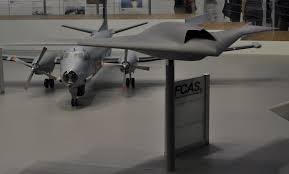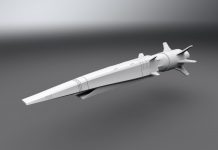
Reports suggesting major disputes among the partners of the Franco-German-Spanish Future Combat Air System (FCAS) project have been overstated, according to a senior French Air Force official, who insisted that the program remains on track with all nations committed.
“There are disagreements, but don’t believe everything you read,” said Brig. Gen. Philippe Suhr, the French Air Force representative for the FCAS initiative.
He reaffirmed that France remains dedicated to working through the challenges alongside its partners. “We are fully committed to this program and will do everything possible to move it forward. Delivering results in the 2040s is essential,” Suhr told journalists during the International Fighter Conference in Rome.
The FCAS, a sixth-generation fighter jet program, was initiated by France and Germany in 2017, with Spain joining later. The aircraft is intended to replace France’s Rafale and Germany’s Eurofighter fleets by around 2040. However, tensions have emerged between the French and German sides over leadership roles, particularly with Dassault Aviation—France’s main contractor—seeking a greater share of responsibility.
Airbus CEO Guillaume Faury, whose company manages Germany’s contribution, recently remarked that Dassault was free to withdraw if dissatisfied with the agreed terms. “If they are not happy with what was decided and choose not to continue under this framework, they are free to leave the FCAS program,” he said.
Suhr downplayed the reported friction, clarifying that Dassault’s expectations had been misrepresented. “Claims that Dassault is asking for 80 percent control are simply not true,” he stated.
While the FCAS faces delays, the rival Global Combat Air Programme (GCAP)—a joint project between Italy, the U.K., and Japan—appears to be progressing. Three industrial consortiums were recently set up to manage different aspects of GCAP’s development.
During a call with analysts, Leonardo, Italy’s lead contractor, announced it expects to secure more than €1 billion in national contracts for GCAP by December. “Our competitors are slowing down,” said CEO Roberto Cingolani.
Speaking at the same conference, Italian defense official Col. Antonio Vivolo described GCAP as an opportunity for Italy to maintain a balance between national technological independence and international collaboration.
“To keep pace with rapidly evolving and critical technologies, nations must retain a degree of sovereignty—even within partnerships like GCAP,” Vivolo explained. “The objective is not only to produce a new fighter jet but also to safeguard technological and industrial autonomy. That way, as threats and alliances shift, we can adapt our capabilities without having to renegotiate our freedom of action.”
He added that maintaining this autonomy is essential to prevent sixth-generation fighter development from being dictated by others. “Without this level of sovereignty, the sixth-generation concept would remain an attractive idea controlled elsewhere—and that is not acceptable,” Vivolo said. “At the same time, by presenting clear, capability-based requirements, we position ourselves as dependable and valuable partners.”




